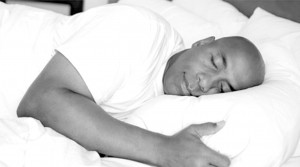Sleep: Nature’s elixir for sustaining good health
21st August 2017 · 0 Comments
By Kevin McNeir
Contributing Writer
(Washington Informer/New America Media) — How many hours per night do you sleep? Do you ever feel the need to take a catnap in order to make it through the day? What are the benefits of a sufficient amount of sleep? And why does it seem that both infants and children, as well as elders, require more sleep than others?
These are the kinds of questions that sleep researchers, psychiatrists and behavioral scientists explore in this new millennium where the average life expectancy continues to rise and where more medical breakthroughs provide ways to overcome illnesses once considered to be death sentences.
During an interactive session recently led by Sonia Ancoli-Israel, PhD, during the 21st World Congress of Gerontology and Geriatrics in San Francisco, a standing-room only crowd listened to her and several others as they shared their latest findings on the importance of getting adequate quality sleep. They stressed that it is associated with healthy aging, as well as how to better manage sleep disorders, particularly in older patients.
Caffeine, Alcohol and Insomnia
One thing on which medical experts agree: Sleep can start to deteriorate in late middle age and steadily erode from that point on. Also, poor sleep, counter to commonly accepted theories, does not occur because of aging, but rather because of illnesses or the medications one uses to treat them.
“The more disorders older adults have, the worse they sleep,” said Ancoli-Israel, who directs the Gillin Sleep and Chronomedicine Research Center at the University of California San Diego School (UCSD) of Medicine. “If you look at older adults who are very healthy, they rarely have sleep disorders,” she said.
What about those who say they suffer from insomnia? Ancoli-Israel, a professor of psychiatry and also director of education at UCSD’s Sleep Medicine Center at UCSD, said there are a few changes one can make.
First, she advised, avoid caffeine after lunch. Also, avoid alcohol, which although it makes one sleepy, may actually increase the risk of insomnia. If one can’t get to sleep, get up and do something active for a while. Then return to bed. Most important, Ancoli-Israel said, remember that the bed is meant for sleep — not for texting or returning e-mails — or for tossing and turning.
For the record, given the healing benefits associated with sleep, it may be wise to consider a few reasons why we should remember that adequate sleep remains a key part of a healthy lifestyle, impacting the heart, one’s weight and the mind in positive ways. In addition, adequate sleep not only makes us feel better, experts say, but has benefits way beyond keeping those bothersome bags under our eyes from developing or making us grouchy.
5 Tips for Sleep Health
One sleep research report conducted by the New York University Sleep Disorders Program made the following observations:
• Memory improves after a good night’s sleep, so don’t fight the need to rest.
• Too much or too little sleep, for reasons still unknown, can be connected to shorter lifespans.
• Sleep not only can reduce levels of stress but helps people maintain greater control of their blood pressure and cholesterol levels — both of which play a significant role in heart disease.
• Sleepiness, often underrated, affects both reaction time and decision making and costs society more than we can imagine
• And if you’re trying to handle depression, make sure you’re sleeping well as a lack of adequate sleep can result in a lot more than just a few moments of irritability.
D. Kevin McNeir, editor of the Washington Informer, wrote with support of a journalism fellowship from New America Media, the Gerontological Society of America and AARP.
This article originally published in the August 21, 2017 print edition of The Louisiana Weekly newspaper.



